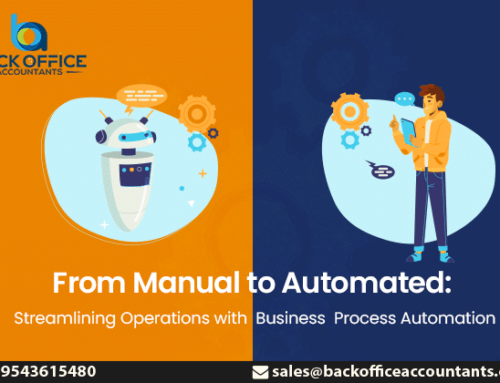Every business maintains a general ledger which details and records the cash transactions performed by the company; a book to track and record the money coming in and going put to show the current status of the business in cash terms.
To be more specific, the ledger or cashbook of the business comprises of two columns, cash column that shows the cash available for business at hand and bank column that shows the cash available at the bank. The bank managing the business also comprises of credit and debit side columns showing the current available cash at hand in the statement.
And on a few occasions due to varying reasons, the cash in the bank column of the business’s cash book and cash in bank statement may not match. Bank reconciliation for business is performed to identify the reasons for the differences and even out the balances of cash book and bank statement and Bank Reconciliation Statement is a document that records the reconciliation and serves as an official document for the perusal of businesses.
But how come difference happens between the cash book and bank statement? Why bank reconciliation is necessary, what are its objectives and importance? In this blog here we answer your questions, so read on:
Bank service charges, the difference in timing of the transaction, check printing charges, errors in the books or banks, electronic charges of the bank are some of the most common reasons for the regular mismatch of the accounts. Given they happen at only one hand (bank) without the knowledge of the other, the financial mismatch in the account section is common and is also not very significant. Some of the other reasons for a significant mismatch in the account balances include:
Checks that are issued but not presented at the bank: When an accountant/cashier issues the checks and records the same under the bank’s column of the cash book. However, in a few cases, the party may not present the cheque and the amount is debited from the bank side only after the cheque is presented. The same delay in the debit or credit can happen for the cheques paid into the bank by the business too. So there always can be a gap in the balances when it comes to the payment made or received through the cheques.
Direct payments and deposits: When customer make direct payments to the banks, the same may not be reflected in the cash book of the business enterprise. Similarly, banks may make direct payments in few cases under ECS towards certain payments like insurance premiums and EMIs which cash book may not promptly get hold of.
Credit or debit given by the bank: Interests on the deposits of the business entity are periodically credited to the bank account of the business. The amount is also debited pertaining to the overdraft or bank charges and both can cause discrepancies, even significant ones depending on the business.
Importance of Bank Reconciliation in Accounting:
Given all the above reasons or the mismatch in business are legit bank reconciliation which calls for easy reconciliation, the entire may seem less important but that is far from the truth. The frequent mismatch of the account balances makes a business a ripe ground for fraud and misappropriation of fund which only is avoided with periodical bank reconciliation process. Bank reconciliation helps you optimize your cash flow by giving your greater visibility of transactions bank charges, fees and interests which is the stepping stone to improve and optimize the process avoiding any pitfalls and frauds. In essence, bank reconciliation is one of the most crucial steps in the accounting process whose main objectives are to:
- Ensure accurate financial transactions and records.
- Detect errors or fraud and the existence of transactions that may be invisible.
- Track receivables, payables and other transactions that aid in financial analysis.
- Reduce the risk and catch the financial fraud before it’s too late for the business.
An efficient and accurate bank reconciliation for business reduces the number of bounced checks and payments, provides cleaner books, gives greater visibility and insight into payments and transactions and provides greater confidence in the amount that is on-hand which is crucial or small and medium businesses especially during these tumultuous times.
However not all the businesses get to complexly benefit form efficient and accurate bank reconciliation process owing to shortage of expertise or accounting resources. If you are a small and medium business that is looking to leverage all the benefits of the bank reconciliation process at an affordable price you can simply outsource bank reconciliation process to the accounting experts at Back Office Accountants. Being one of the best back-office accounting firms in the business we provide the expert bank reconciliation services for businesses at an affordable price point. You can contact us here: https://www.backofficeaccountants.com/
.







